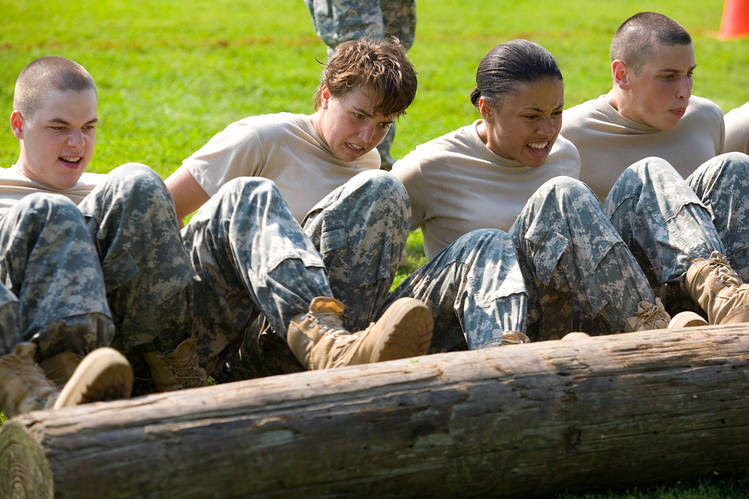New Evidence for the Power of Grit
A study of West Point cadets shows that perseverance is just as important to success as brains or brawn

By: Susan Pinker
https://www.wsj.com/articles/new-evidence-for-the-power-of-grit-11576770214
Dec. 19, 2019 10:43 am ET
When I think of grit, a childhood friend comes to mind. Six of us neighborhood girls walked to school together, but it was Linda who bore the brunt of the boys’ snowballs. Once there she faced bigger hurdles: Every week our third-grade teacher made her circle the classroom with a failed test pinned to her tunic. Still, Linda pushed on, not just at age 8 but for years, until she earned a Ph.D. in English.
This kind of perseverance is a necessary ingredient of success, according to Angela Duckworth, a University of Pennsylvania psychologist who calls it “grit.”
In 2007, Dr. Duckworth and three colleagues published a paper in the Journal of Personality and Social Psychology, showing that a brief questionnaire measuring grit could predict who would succeed in tough environments such as military academies, Ivy League schools and even high-stakes spelling bees. Prof. Duckworth and her team later extended the findings, showing that grittier people are more likely to stay the course in long-haul commitments such as marriage.
In every study, the researchers had benchmarks showing how gritty each participant was compared to the norm, based on their performance on the 12-item Grit Scale. Developed by Prof. Duckworth, the scale includes statements such as “Setbacks don’t discourage me” and “I often set a goal but later choose to pursue a different one.” Each participant responded with one of five graded answers, from “very much like me” to “not like me at all.”
Still, some questions remained. Would the evidence about grit survive replication? Over the last decade, a slew of viscerally appealing findings published in top psychology journals couldn’t be reproduced when the same experiments were repeated with greater rigor or larger samples. So Prof. Duckworth and her colleagues at West Point and Duke University decided to redo one aspect of their first experiment using a sample seven times as large as the original, in a recent study published in the Proceedings of the National Academy of Sciences. Nine cohorts comprising 11,258 cadets at West Point were assessed on their levels of grit, academic achievement and physical prowess, with the tests being repeated as the students progressed through college.
The replication was reassuring. “Our original finding was that grit was an extraordinarily strong predictor of who would finish the initial period of training,” Prof. Duckworth said, referring to the punishing six-week initiation period the military cadets call Beast Barracks, or Beast for short. “That replicated,” she said.
Hard work and determination are important, but do they outweigh natural smarts or athletic prowess?
The second question posed by this new study: How does grit relate to other traits, like talent? Hard work and determination are important, to be sure, but do they outweigh natural smarts or athletic prowess?
The researchers measured grit, academic achievement and physical ability, and discovered that “the three factors really are distinct,” Prof. Duckworth said. “The grittier people are not necessarily more able.” And the cognitively able did not have more grit, nor were they more physically adept. In fact, the opposite was true: When one trait went up, the other went down. Students with stratospheric levels of intelligence or physical prowess were less gritty, and thus somewhat less likely to graduate. At the high end of brains and brawn, completion rates dropped off—a paradox that merits its own study.
But overall, the most powerful forecast of a student’s grades at West Point was cognitive ability as assessed by standardized tests, a finding that confirms 100 years of intelligence research. “That’s what predicted military GPA,” Prof. Duckworth said. “Cognitive ability is being smart. It’s not hard to understand how that might help you with military strategy.” In other words, it’s the gritty folks who finish what they start. But it’s the smart ones who go to the top of the class.

